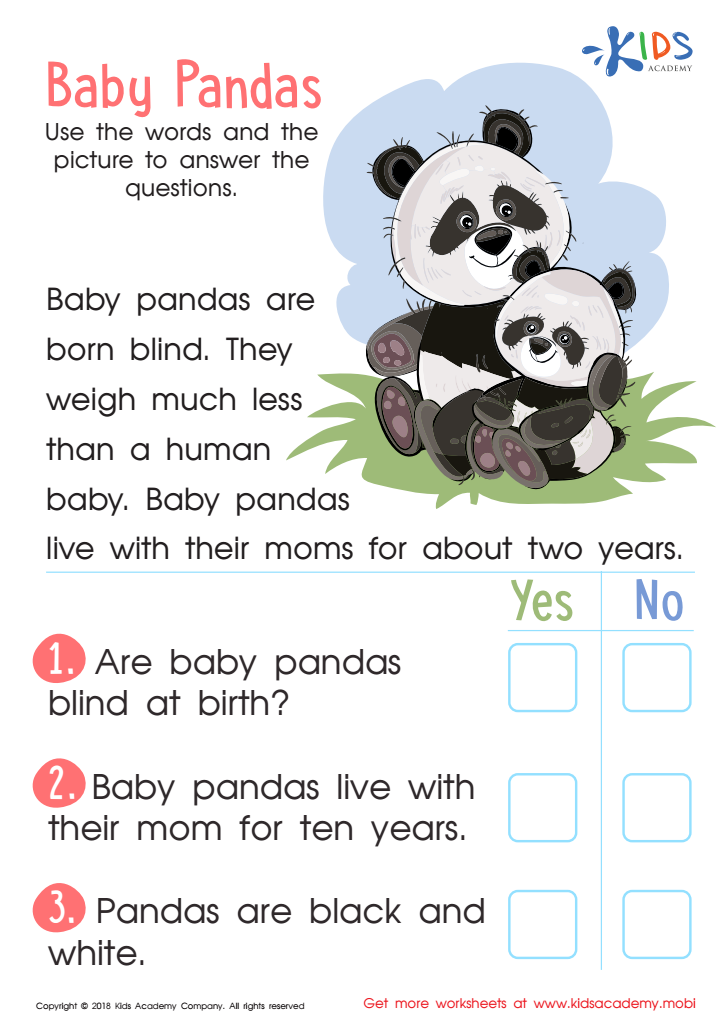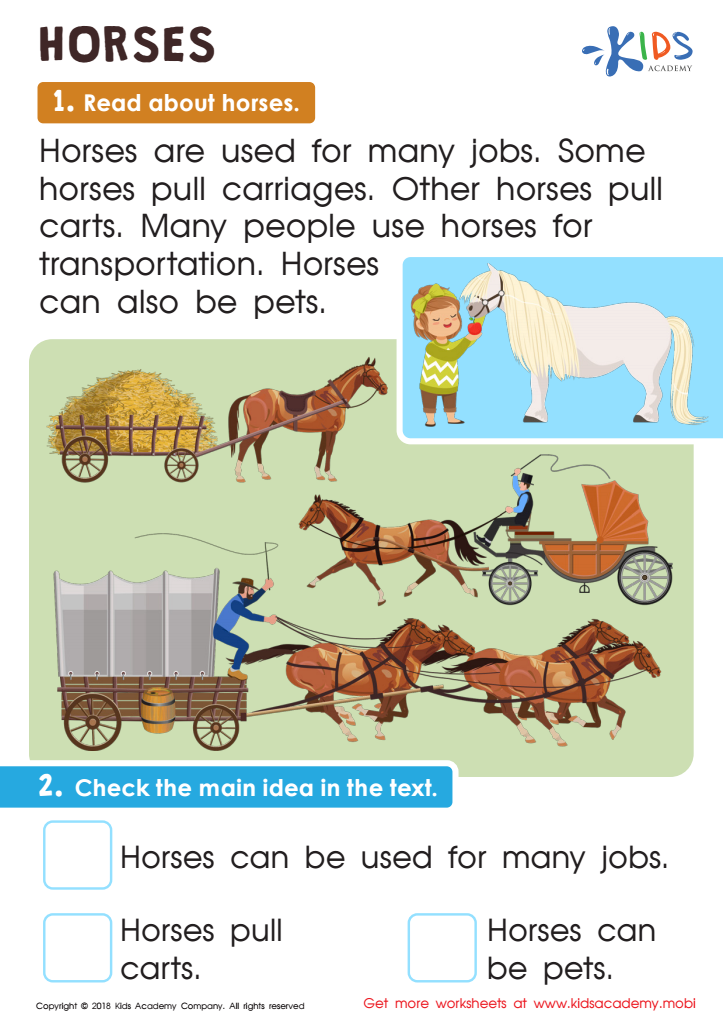Fine Motor Skills Reading Non-Fiction Worksheets for Ages 6-8
3 filtered results
-
From - To
Help your child excel with our Fine Motor Skills Reading Non-Fiction Worksheets designed specifically for ages 6-8. These engaging worksheets combine essential reading comprehension with fine motor skill development, providing a fun and educational experience. Each activity encourages handwriting practice, cutting, and pasting while introducing fascinating non-fiction topics. Children will explore themes from nature to science, enhancing their understanding of the world around them. Perfect for classroom use or home study, these worksheets foster creativity, strengthen motor skills, and boost literacy. Invest in your child's development today and make learning an enjoyable adventure with our thoughtfully crafted resources!


More Octopus Facts Worksheet


Baby Pandas Worksheet


Horses Worksheet
Fine motor skills are crucial for children's overall development, particularly during the ages of 6-8, when they begin to engage more deeply with academic tasks. Parents and teachers should care about nurturing these skills, as they are foundational for activities such as writing, drawing, and manipulating small objects, which are often integral to learning tasks.
Reading non-fiction at this age involves comprehension, analysis, and the ability to process information. As children read non-fiction text, they embark on an exploration of the world around them, discovering facts and concepts that enrich their understanding. Fine motor skills support this process by allowing them to interact with various learning materials—such as diagrams, charts, and interactive books—effectively. For instance, using scissors for crafting projects or practicing writing can improve coordination, confidence, and attention to detail.
Moreover, engaging students with non-fiction texts fosters critical thinking and curiosity. By linking fine motor activities—such as drawing what they've learned or working with tactile materials—to their reading experience, parents and teachers can create a multisensory approach that reinforces comprehension and retention. Thus, developing fine motor skills cultivates a richer, more engaging learning experience that lays the groundwork for future academic success.
 Assign to My Students
Assign to My Students
















